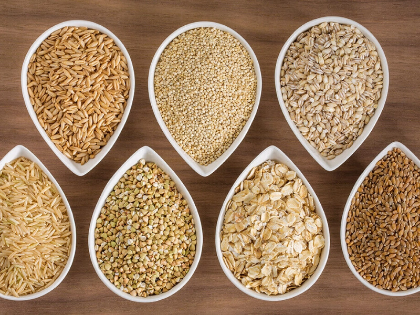Berries For Brain Health: Enhancing Memory And Cognitive Function
Strong brain-enhancing substances called anthocyanins, which are found in berries, have been demonstrated to lessen memory decline. They also aid in boosting blood flow to the brain and reducing inflammation. Other strategies to support memory health include quitting smoking, exercising, and limiting inflammatory foods. It's crucial to eat a range of fruits, vegetables, and healthy fats.
Blueberries
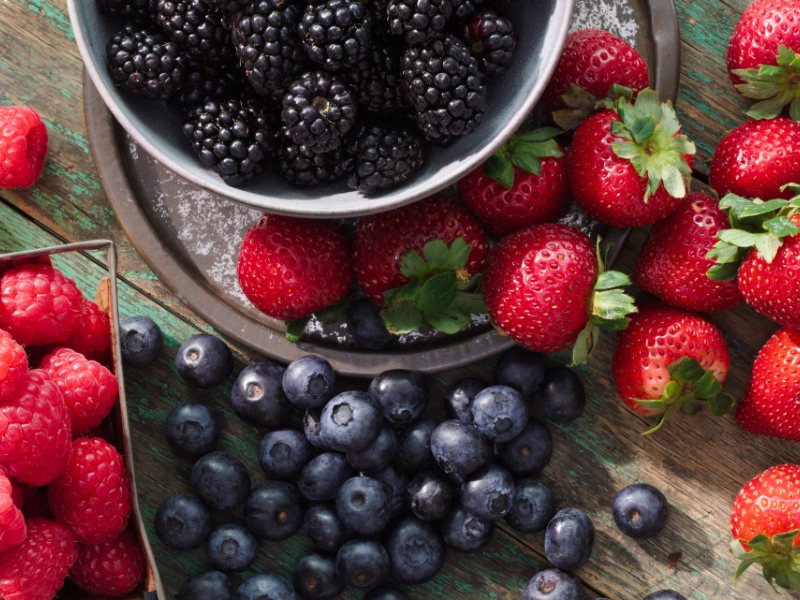
Strawberries
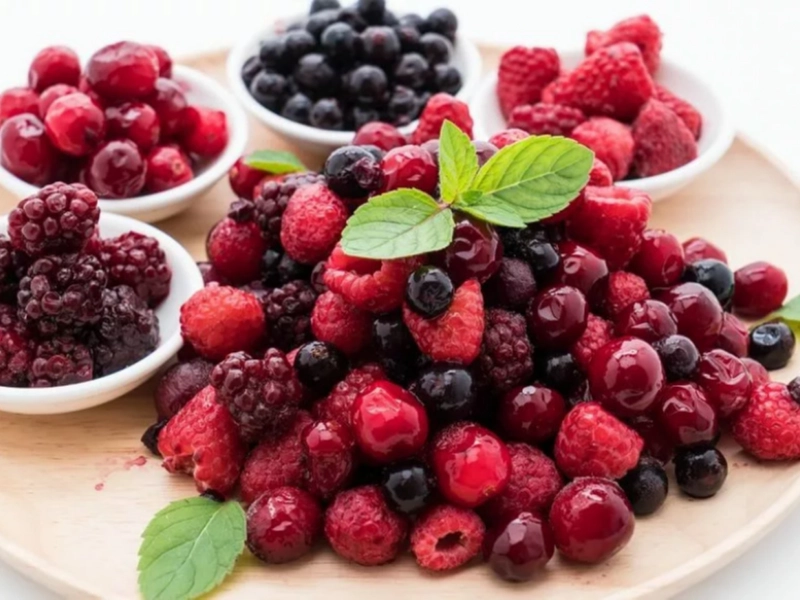 A recent clinical trial revealed that middle-aged, overweight adults who regularly ingested strawberry powder performed better on a word list learning test. These results are consistent with recent research showing that strawberries' antioxidant components, or anthocyanins, improve cognitive performance.
35 healthy men and women between the ages of 66 and 78 were given a placebo or 26 grammes of freeze-dried strawberry powder to consume every day for the duration of the trial. Participants finished a range of cognitive tests and metabolic assessments over the course of eight weeks.
In a delayed recognition test, the researchers found that the strawberry group had less memory interference, which could be a sign of better executive functioning. This is significant since dementia and other chronic diseases are associated with midlife executive functioning impairment. The authors hypothesise that a decrease in brain inflammation may be the cause of the strawberry-enhanced cognition seen in their investigation. This is significant because middle-aged excess weight and insulin resistance have been shown to exacerbate inflammation.
A recent clinical trial revealed that middle-aged, overweight adults who regularly ingested strawberry powder performed better on a word list learning test. These results are consistent with recent research showing that strawberries' antioxidant components, or anthocyanins, improve cognitive performance.
35 healthy men and women between the ages of 66 and 78 were given a placebo or 26 grammes of freeze-dried strawberry powder to consume every day for the duration of the trial. Participants finished a range of cognitive tests and metabolic assessments over the course of eight weeks.
In a delayed recognition test, the researchers found that the strawberry group had less memory interference, which could be a sign of better executive functioning. This is significant since dementia and other chronic diseases are associated with midlife executive functioning impairment. The authors hypothesise that a decrease in brain inflammation may be the cause of the strawberry-enhanced cognition seen in their investigation. This is significant because middle-aged excess weight and insulin resistance have been shown to exacerbate inflammation.
Raspberries
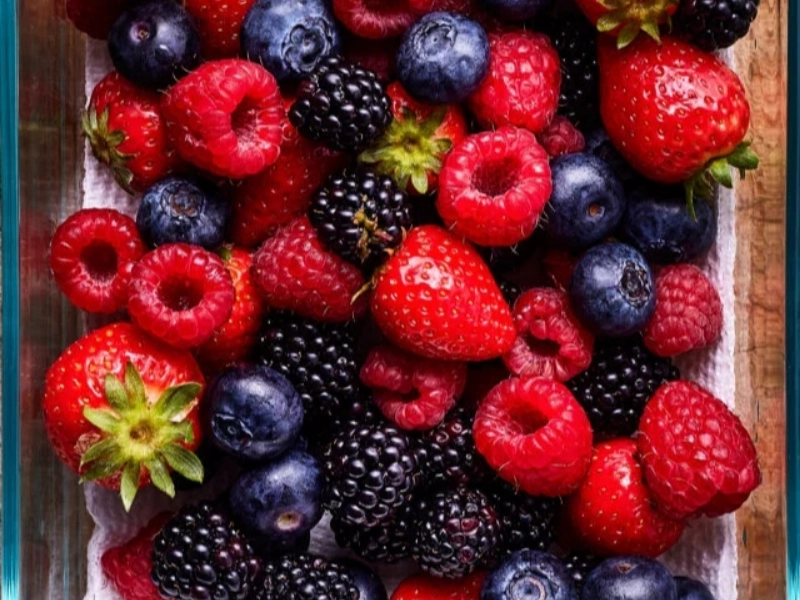 Eating meals rich in antioxidants and polyphenols—the compounds that give plants their colour—has been shown by researchers to enhance memory. They speculate that this might be because these substances alter how neurons communicate and reduce inflammation in the brain. These chemicals are abundant in berry fruits like strawberries, raspberries, and blueberries. Additionally, fatty seafood like mackerel, salmon, and tuna contain them.
Red raspberries have high levels of the beneficial substances ellagitannins and anthocyanins. It has been demonstrated that these substances can pass across the blood-brain barrier and concentrate in brain areas related to learning and memory. This could be the reason for the association between enhanced cognitive performance and a diet high in berries.
Another potent antioxidant is vitamin C. It is essential for the synthesis of neurotransmitters like serotonin, which are involved in mood regulation and memory, and it can strengthen immune system functioning. Additionally, it can aid in defending the body against long-term conditions like Alzheimer's, type 2 diabetes, and cardiovascular disease.
Eating meals rich in antioxidants and polyphenols—the compounds that give plants their colour—has been shown by researchers to enhance memory. They speculate that this might be because these substances alter how neurons communicate and reduce inflammation in the brain. These chemicals are abundant in berry fruits like strawberries, raspberries, and blueberries. Additionally, fatty seafood like mackerel, salmon, and tuna contain them.
Red raspberries have high levels of the beneficial substances ellagitannins and anthocyanins. It has been demonstrated that these substances can pass across the blood-brain barrier and concentrate in brain areas related to learning and memory. This could be the reason for the association between enhanced cognitive performance and a diet high in berries.
Another potent antioxidant is vitamin C. It is essential for the synthesis of neurotransmitters like serotonin, which are involved in mood regulation and memory, and it can strengthen immune system functioning. Additionally, it can aid in defending the body against long-term conditions like Alzheimer's, type 2 diabetes, and cardiovascular disease.
Blackberries
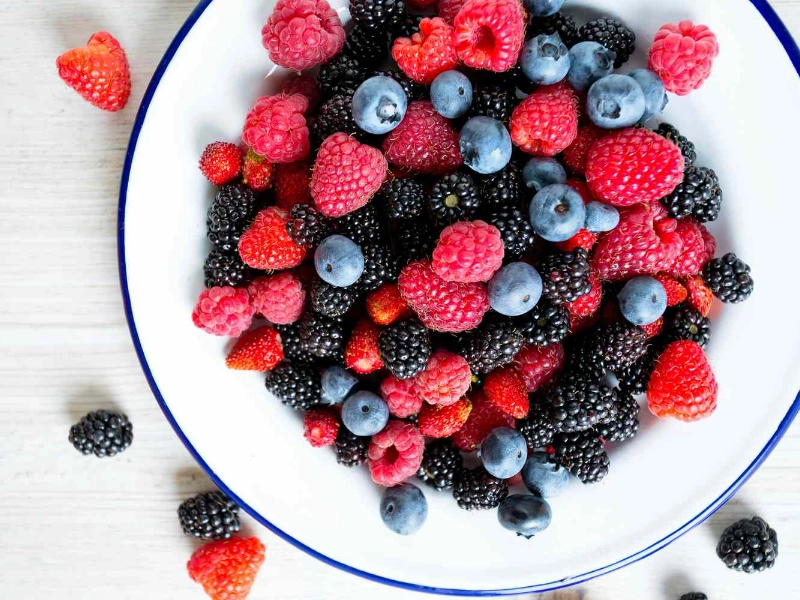 Antioxidants found in blackberries can reduce oxidative stress and improve cognition. They also include significant concentrations of manganese, a mineral that is crucial for the health of the brain. In one study, participants who consumed two or more servings of strawberries and blueberries per week demonstrated enhanced cognitive function and motor coordination.
Berries have been shown in studies to increase blood and oxygen flow to the brain, which may enhance focus. It has been demonstrated that the flavonoids in berries, especially anthocyanins, reduce the oxidative stress-induced damage to neurones.
The PICOS (participants, interventions, comparators, outcomes, and study design) criteria were used in this systematic review of clinical trials to find and assess randomised controlled trials that looked at the impact of whole berries, berry-based products (such as smoothies or juice), or berry extract/capsule supplementation on cognitive-related outcomes in adult and elderly individuals with healthy cognitions, or MCI. Global cognitive performance, psychomotor function, learning and memory, working memory capacity, executive functions, and brain perfusion/activity were the topics of nine research projects that were chosen and included in the analysis.
Antioxidants found in blackberries can reduce oxidative stress and improve cognition. They also include significant concentrations of manganese, a mineral that is crucial for the health of the brain. In one study, participants who consumed two or more servings of strawberries and blueberries per week demonstrated enhanced cognitive function and motor coordination.
Berries have been shown in studies to increase blood and oxygen flow to the brain, which may enhance focus. It has been demonstrated that the flavonoids in berries, especially anthocyanins, reduce the oxidative stress-induced damage to neurones.
The PICOS (participants, interventions, comparators, outcomes, and study design) criteria were used in this systematic review of clinical trials to find and assess randomised controlled trials that looked at the impact of whole berries, berry-based products (such as smoothies or juice), or berry extract/capsule supplementation on cognitive-related outcomes in adult and elderly individuals with healthy cognitions, or MCI. Global cognitive performance, psychomotor function, learning and memory, working memory capacity, executive functions, and brain perfusion/activity were the topics of nine research projects that were chosen and included in the analysis.






